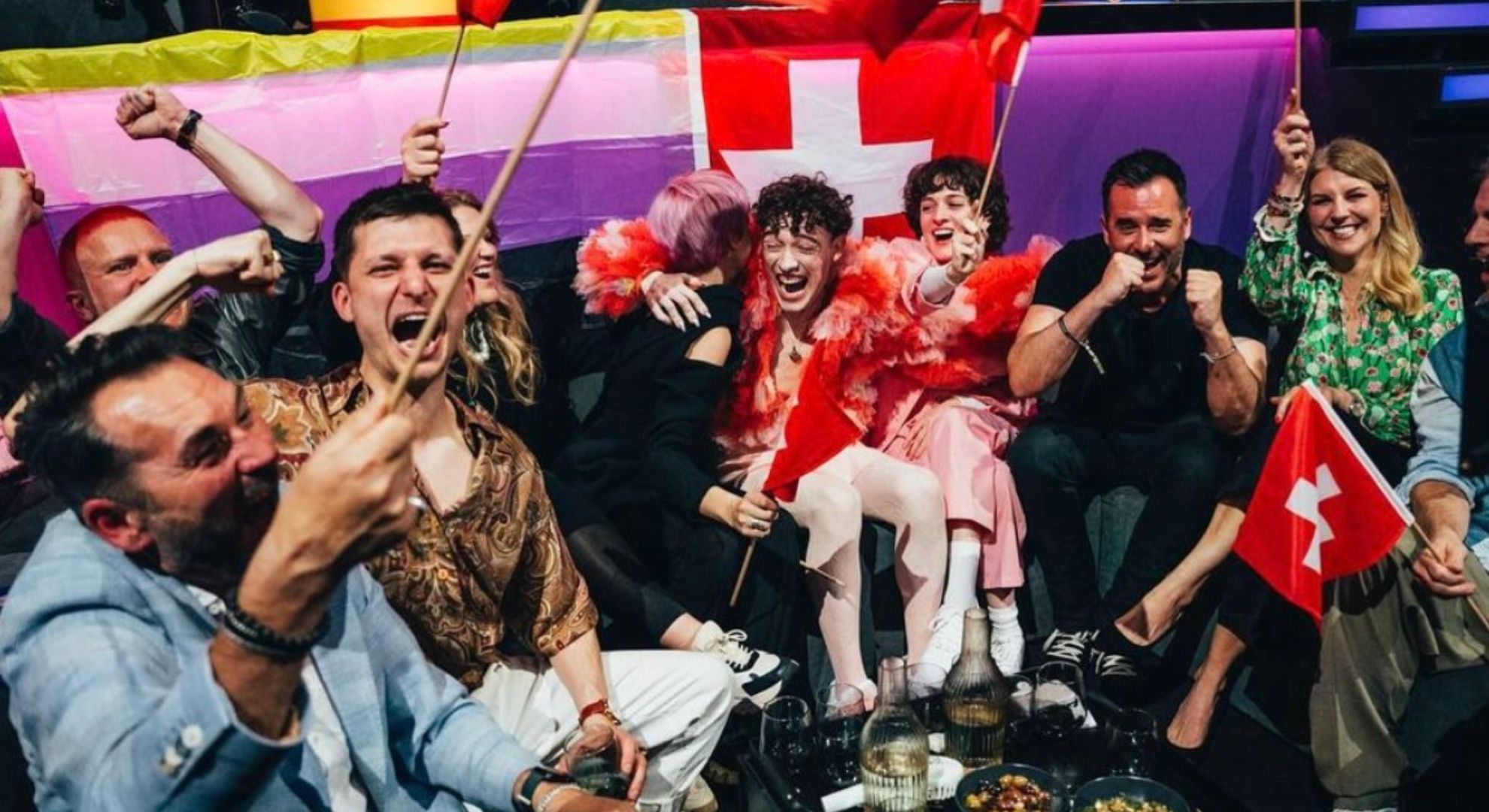Will Eurovision be seeing its end soon? Who knows.
The Eurovision Song Contest is an international song competition that has been held annually during the month of May since 1956. Created by the European Broadcasting Union (EBU) and now on its 68th edition, the song contest has solidified itself as an integral part of European culture, and a music powerhouse, regardless of genre.
Some of the artists that we now love and behold like ABBA, Celine Dion, and Olivia Newton-John got their jump start on the Eurovision stage, as it is an effective way to let a European country’s music become known around the world.
The international song competition also gained its current popularity not only for the music alone, but also for the “camp” appeal that seemingly gets better and better as each year passes, as well as becoming part of the LGBT culture in Europe and becoming internally grained in European pop culture.
However, Eurovision has also become subject to a multitude of controversies during its running, mostly politics-related. Some of these known political conflicts were the Armenia-Azerbaijan conflict during the late 2000s, Georgia’s withdrawal during the 2009 due to Russo-Georgian War, and the most infamous one: Israel’s participation.
Ironically, the Eurovision contest continuously aims to promote a “non-political” atmosphere, with its slogan, “United by Music.”
In 2022, Russia was excluded from participating in the Eurovision because of its invasion of Ukraine in February. Belarus was also excluded in the same year because of its national broadcaster BTRC for its use as a propaganda tool, and also lost the rights to broadcast and participate in any kind of Eurovision event until July 1, 2024.
This year’s Eurovision seems to be the tensest one to date, which can be largely attributed to Israel’s participation in the said song competition.
You’re probably asking the question, if it’s called “Eurovision,” why is Israel and Australia part of the competition?
Well, the short answer is this: The Eurovision Song Contest is organized by the European Broadcasting Union (EBU), and it is held annually between the members of this union. So, any member or broadcaster part of this union is allowed to participate.
Also, becoming eligible to participate in Eurovision doesn’t necessarily mean the country is geographically in Europe nor do they have to be a member of the European Union. So, that’s that.
Israel made its debut in the Eurovision Song Competition in 1973 and won the contest about 4 times: in 1978, 1979, 1998, and 2018. Their participation in the contest has almost always been controversial, with their hosting of the 1979, 1999, and 2019 Eurovision being slightly marred with objections from religious leaders with regards to the potential interruption to Shabbat, or Judaism’s Day of rest.
In 2019, a number of boycotts were called for by different groups such as the Boycott, Divestment and Sanctions (BDS) due to Israel’s policies and actions towards Palestinians in the West Bank and Gaza, as well as the Israeli government’s “pink-washing”.
In 2024, Israel’s participation in the Eurovision was once again raised concerns following its ongoing military campaign in Gaza and in different territories under the control of Palestine, and the humanitarian crisis caused by it.
Another issue rose when the song that the Israeli delegation had originally submitted referenced the October 7 attacks on Israel by Hamas, with the EBU having to rule it out after it was in violation of the rules.
The Eurovision 2024 semi-finals were held on the 7th and 9th of May, with different demonstrations against Israeli participation and support for Palestine were held in the host city Malmö. The demonstrations had a turnout of around 25,000 people, including Swedish activist Greta Thunberg.
She solved the climate crisis, so now it's time for the middle east, naturally. pic.twitter.com/vUlLBcTwcH
— 🚨 Katherine Brodsky (@mysteriouskat) May 11, 2024
Even some of the contestants themselves were against Israel’s participation in Eurovision, and definitely made it known. Ireland’s bet Bambie Thug, in particular, has been one of the most vocal about it. Other current and former Eurovision contestants such as Greece’s Marina Satti, Switzerland’s Nemo, Sweden’s Eric Saade, Belgium’s Mustii, France’s La Zarra and Slimane, Latvia’s Dons, and The Netherlands’ Joost Klein also made statements and actions that weren’t supportive of Israel.
The Netherlands’ contestant, in particular, had questioned Israel’s Eden Golan for choosing not to answer a question by a journalist during a press conference which was, “Have you ever thought that by being here you are bring risk and danger for other participants?” by saying, “Why not?” while covering his face with his country’s flag.
Joost Klein in Europapa:
"I don't care who you are, I don't care where you're from"Also Joost Klein:
"Why not" after the Polish journalist blamed Eden Golan for all the threats she gets by radical Islamists, all the while he covers his head with the Dutch flag.So… pic.twitter.com/aCbOvDiB82
— Ella Travels (Ella Kenan) (@EllaTravelsLove) May 10, 2024
On the 10th of May, reports of an incident surrounding Joost Klein and a reporter started flaring on the Internet, leading to rumors of his disqualification being spread too. Other reports such as harassment by the Israeli delegation to the delegations and journalists of other countries were also made known on social media, with one Spanish journalist coming forward with his own experience of being “intimidated” and “harassed”.
UPDATE:
A Spanish Journalist confirms he was "intimidated" and "harassed" by Israeli journalists for his stance on Israel's participation in the contest.pic.twitter.com/L60pyD6QPp
— Honest Vocal Cunt | 🇽🇰 🇦🇲 🇵🇸 🇺🇦 (@VocaISuspension) May 10, 2024
Other clips of some Israeli journalists harassing other contestants also made waves on social media. Some involved the participants being filmed without consent, which is most definitely illegal in Sweden.
Israel at Eurovision, a threat. Standing in front of the Greece changing room and acting to puke. Hating on Ireland. Hating on Croatia. Filming joost without his permission. pic.twitter.com/xqGTWp8Oa5
— May (@Maymissesyou) May 11, 2024
Then on the day of the finals, May 11, 2024, all hell broke loose when the European Broadcasting Union and the team behind Eurovision announced that they have disqualified The Netherlands’ Joost Klein from participating, following a “verbal assault” on a Swedish production crew after his performance last Thursday night’s semi-final round.
Statement on Dutch participation in the Eurovision Song Contest.https://t.co/EKagHwQKCZ
— Eurovision Song Contest (@Eurovision) May 11, 2024
Eurofans, or fans of the song competition, were all up in flames following the news. The hashtag #JusticeForJoost became popular on the Internet after his disqualification had been announced.
JOOST DID NOT WANT TO BE FILMED AND HIS WISH WAS NOT RESPECTED. HE THEN MADE A MOVEMENT TO THE CAMERA BUT DID NOT TOUCH IT.
THIS HAS LED TO THE DISQUALIFICATION OF THE NETHERLANDS AT EUROVISION.
BRING BACK JOOST KLEIN pic.twitter.com/eMXIjjp9CE
— femke 💙🇳🇱🇪🇺 (@inlauvperry) May 11, 2024
The people’s winner, his parents’ biggest pride, the price of the netherlands, Mr. Europapa, and Mr. Boom boom, Joost Klein.
RT to scare the EBU. #JusticeForJoost #Eurovision2024 pic.twitter.com/vVAUJLXa5p— escxlove🇳🇱🇪🇺 (@escxlove) May 11, 2024
the man the EBU is so afraid of#justiceforjoost pic.twitter.com/eQBblYIVxd
— ☆ kvasya 🫐🇺🇦 | 🇳🇱🇬🇷🇱🇹🇵🇹 (@aksujl) May 10, 2024
he had only one dream and you took it away from him #justiceforjoost #justiceforjoostklein pic.twitter.com/BhltzIP2Md
— buse ✩°。⋆⸜ ✮₊˚⊹ (@jajaeurowizja) May 11, 2024
“Please dont touch me” How can you say that when YOU are the one willingly approching them without even being asked YOU are harassing them and its not the first time mind you I seriously have no words I am so fucking angry #justiceforjoost pic.twitter.com/AmDV1k2N8H
— . (@7everlong) May 10, 2024
EBU DESTROYED HIS DREAM. #justiceforjoost pic.twitter.com/qqVm0wU59S
— lili 🇳🇱🇪🇺 | 🇭🇷🇮🇹 (@lilixesc) May 10, 2024
united by music❌
divided by music❌
united by joost✅#Justiceforjoost #Eurovision2024 #Europapa pic.twitter.com/QlHzJcIxoO— Albino Sports ||JOOST KLEIN💙|| (@Albinosports) May 11, 2024
Justice for Joost! #joost #JusticeForJoost pic.twitter.com/dXyZ3bPiPZ
— Ramon Maas (@RamonMaas) May 10, 2024
Israel: Bambie shouldn't be allowed to breathe
EBU: That's okay! 😊
Netherlands: Please stop filming me, please stop filming me, please stop filming me *moves towards camera*
EBU: DISQUALIFIED 🧑⚖️— Nicole 🌻🍉 | 🇳🇴🇮🇹🇨🇭 (@Nicoleep01) May 11, 2024
he was disqualified for standing up for himself and his own privacy. meanwhile a delegation that has been harassing artists and violating their rights all week is going to perform freely tonight. fuck this. fuck the ebu. https://t.co/R3vvtTPLCb
— dominic 🫧 | proud of nemo 🫶 (@dominic_esc) May 11, 2024
joost according to ebu pic.twitter.com/TREXeNQxHS
— okyo 🪼💙🇳🇱💙🇨🇭🇭🇷 (@okyxxnus) May 11, 2024
so you DO know how to disqualify countries? just not ones committing genocide. https://t.co/WRvDpeQO0I
— ethan 😼 🇵🇸 | 🇳🇱🇨🇭🇮🇪 (@LlZTRUSS) May 11, 2024
this sentence is absolutely hilarious because its just absolutely not true pic.twitter.com/EVW8q6Cf4h
— freddie 🇬🇪🇳🇴🇪🇸 (@escfreddie) May 11, 2024
Look, if Joost broke the rules then fine, whatever, he should be disqualified. But the fact of the matter is that a certain delegation has been harassing, misgendering & dishing out death threats to artists & journos, so for consistency, they should also be disqualified. @EBU_HQ
— Callum (@callum_nowacki) May 11, 2024
The EBU: pic.twitter.com/pA1T6TfuhN
— Liz 🌹🍉|🦆🍊🦖🐰🐹 (@EuroEvEliza) May 11, 2024
imagine dreaming about eurovision since you're a kid, you make it there, you're a favourite, you dedicate your performance to your deceased parents – and suddenly your participation is at risk and israeli "fans" are mocking the death of your father. joost deserves better
— kjet 🇬🇪 (@VlSl0NARYDREAM) May 10, 2024
So from what I know of the Eurovision Joost situation, it comes down to this#Eurovision2024 pic.twitter.com/cMIMa3m6q2
— Céline Heijnen (@HeijnenCeline) May 11, 2024
Even before the news of his disqualification was announced, people had already started saying that Eurovision was dead, and that a country not even from Europe had destroyed it.
After 68 years, Eurovision will be destroyed by a country that is not even in Europe 💀
— Petar | 🇷🇸 (@escpetar) May 10, 2024
The mask of @Eurovision finally fell off, nothing screams double standards more than banning one country for "inappropriate behaviour", while tolerating the another delegation's vile harassment of both Eurovision artists AND journalists.
— luuk (@escluuk) May 11, 2024
the united by music slogan to be permanent will go down in history as one of those biggest failed rebrands ever made
— rasmus (@rasmusbravado) May 10, 2024
this video captures perfectly what is going on with eurovision rn cause what the actual fuck
pic.twitter.com/7RohF6ry51— rasmus (@rasmusbravado) May 10, 2024
What do we know
– All the finalists are mad,sad and shocked
– Martin wants to quit as supervisor
– Joost might get disqualified
– the israeli delegation been looking for beef with people
– ESC 2024 might get cancelledThank you israel #Eurovisionpic.twitter.com/8f5HjHuvza
— BEYHIVE★ARIANATOR ☾ (@beyonceariana_) May 10, 2024
This is the darkest moment in Eurovision history, i feel sick. Free Palestine
— dom 💐🍉 (@rossivision) May 9, 2024
Dutch public and television AVROTROS released their own statement after the announcement of Joost Klein’s disqualification.
🇳🇱 AVROTROS has released a statement following Joost Klein's #Eurovision disqualification pic.twitter.com/KYDgpXF5Hx
— ESC Discord (@ESCdiscord) May 11, 2024
They revealed that Joost Klein was filmed without his consent and repeatedly said that he did not want to be filmed, that he did not touch the woman in question, and that his wishes were disrespected.
The AVROTROS also said that they proposed some solutions to the EBU, which they had ignored and went on with the disqualification.
Other POP! stories that you might like:
Popular TikToker Dr. Kimberley Nix loses to cancer at 31, leaves final video for followers
Internet user proves Firefox can run thousands of tabs more than we could ever imagine
Commentary: Stealing credit for someone else’s work is totally not cool
Taylor Swift reportedly submits trademark application for ‘Female Rage: The Musical’
Filipino-Nigerian calls out restaurant for ‘racist’ note written on receipt



